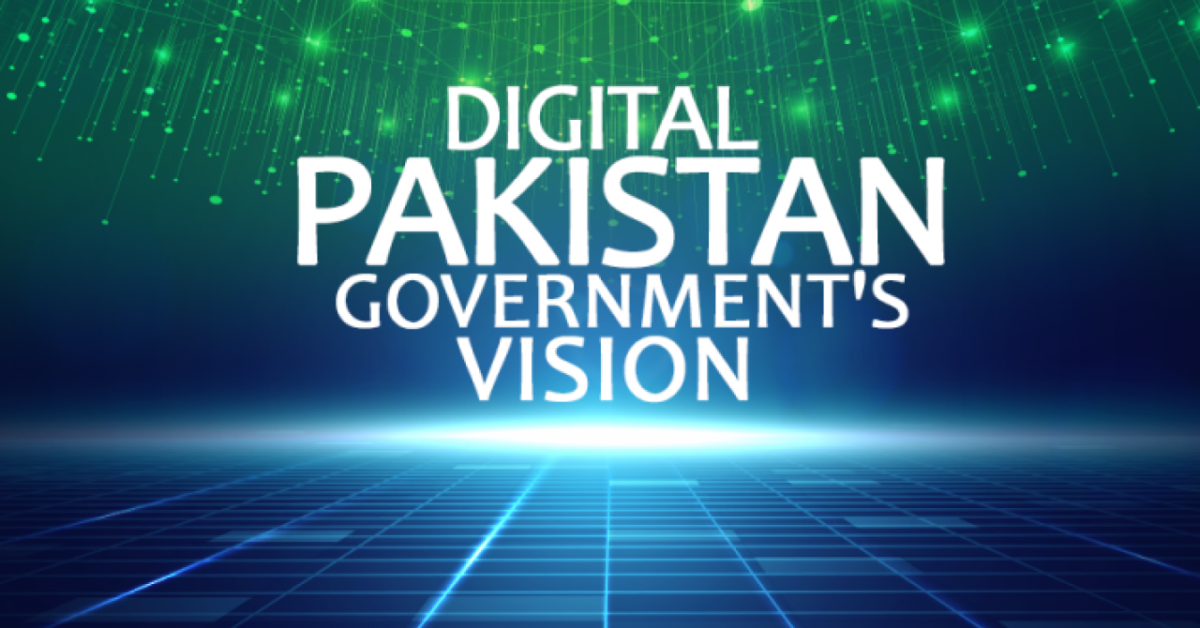
Silicon Valley’s Adopted Child | Conversations@Jazz
April 6, 2020
#COVID19 Curbing the “Broadband Emergency” | Conversations@Jazz
May 11, 2020The Digital Pakistan Policy: Vision and Execution
Pakistan introduced its first ‘Digital Pakistan policy’ back in 2018. The primary aim of this policy was to bolster the IT industry by building a digital ecosystem. Taking a step forward PM Imran Khan launched a ‘Digital Pakistan Vision’ in December 2019 with an aim of enhancing connectivity, improving digital infrastructure, increasing investment in digital skills, promoting innovation, and tech. entrepreneurship.
Tania Aidrus, who quit her position as a Google executive in order to lead the ‘Digital Pakistan Vision’ initiative, is of the view that the digital policy 2018 needs revisiting. In an interview she said:
“In order to have a clear vision on a national level, we need to adapt, change and augment policy. We have laid out our priority areas but we will revisit the digital policy to align it with current digital developments,”
Does the question arise whether the new Digital Vision will complement the 2018 policy? It seems that the 2018 policy was not considered while making a new one, as many of the features are overlapping. Prime Minister has appointed a 17-member task force on IT and telecommunications, responsible for advising policy changes and developing strategic plans in order to strengthen the tech ecosystem. The government has already assigned the Ministry of Information Technology and Telecommunications (MoITT) the task of planning and directing IT programs. National IT Board, a department of MoITT also has the mandate to initiate e-government programs at federal ministries as part of ‘Digital Transformation’.
According to Ms Aidrus “The Digital Pakistan project will operate from the PM Office and set the direction. A combination of private and public stakeholders, including the IT ministry and NITB, must work together and be aligned for execution and matters related to policy.”
The absence of a globally accepted and secure online payment transaction like PayPal is the primary obstacle for the Pakistani freelancers and SMEs who want to excel in e-commerce. Using PayPal one can pay, disburse and receive payments from anywhere in the world. All that needs to be done is getting a credit card or debit card registered with your PayPal account. There are alternatives to PayPal but its global acceptance makes it more important.
Ms Aidrus has denied the media reports that she has promised to bring PayPal and cryptocurrency to Pakistan.
“Global firms, including Facebook and Google, have a defined mechanism that decides requirements to enter a country. They are incredibly cautious as they should be,” she said.
“The aim is to offer comfort, legal framework, security, and policy before expecting these companies to work in Pakistan,” Ms Aidrus said. “The global platforms need to be protected and we are not in a position to give them that assurance yet.”
However, she talked about introducing local alternatives of PayPal in Pakistan which may resolve some of the issues. For instance, NITB is in process of establishing Pakistan’s first e-commerce export platform similar to Alibaba. The payment gateway will be essentially pre-integrated with PayPal, Visa card, MasterCard and Alipay that can be connected to local banks and microfinance companies.
Following are the areas focused by digital Pakistan
ACCESS & CONNECTIVITY
- Low-cost devices
- Internet access
- Affordability of data
- Taxation of broadband Internet
DIGITAL INFRASTRUCTURE
- Regulations and mechanisms for the digital economy
- Identity systems
- Payment solutions
E-GOVERNMENT
- Paperless procurement
- Easy sharing of data within depts.
- Interlink/ expand govt. resources
Digital Skills & Training
- Technical skills
- Bootcamps, vocational opportunities.
- Digital literacy
INNOVATION & ENTREPRENEURSHIP
- Enable the start-up ecosystem
- Ease of business
The future is digital. A solid digital policy needs to be in place to enable Pakistan to grow while facing the challenges of the digital world. Pakistan’s economic condition is weak due to low exports and high imports our tax collection system is also inefficient. The lack of government funds makes it inevitable to borrow from the IMF and others. The devaluation of PKR is also due to the trade deficit and soaring borrowings.
A well-implemented Digital Policy can help in increasing exports as well as better tax collection. E-Governance can help the government in making the lives of the people easy and simple and e-commerce can help the economy to prosper.
Policymakers, economists and industry leaders are having a fierce debate regarding Digital transformation and its societal and economic impacts. Digitalization tends to disrupt society, concerns are growing regarding the way it is affecting jobs, salaries, equality, health & care, resource utilization, and security.






